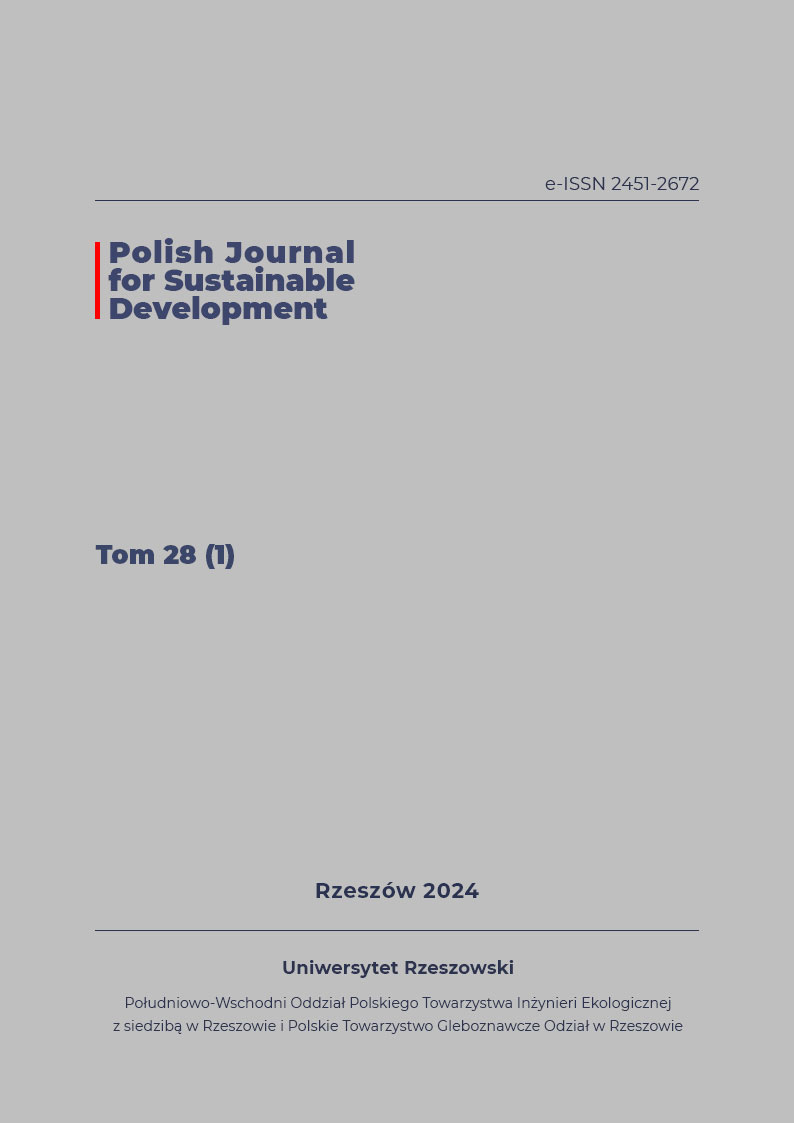Retardacja przekształcania zasobów środowiska - koncepcja popularyzowana przez fundację "W Sercu Matki"
DOI:
https://doi.org/10.15584/pjsd.2024.28.1.17Słowa kluczowe:
retardacja, ekologia integralna, świadomość ekologiczna, popularyzacja nauki, wpływ społeczny, rozwój talentówAbstrakt
Działania popularyzujące ideę retardacji przekształcania zasobów środowiska w sposób niebezpośredni, w ramach z pozoru niezwiązanych projektów, lecz przekazujące przeciętnemu obywatelowi ważne informacje poparte badaniami naukowymi, zdają się mieć większe długofalowe oddziaływanie społeczne niż podejmowanie tematu przede wszystkim na poziomie akademickim. Podmiotem realizującym ideę retardacji jest między innymi Fundacja „W Sercu Matki”. Choć głównym celem statutowym Fundacji było stwarzanie przestrzeni do dzielenia się talentami i wspieranie ludzi w ich rozwoju, Fundacja wskazywała również fundamenty harmonijnego rozwoju człowieka w długim okresie, przy uwzględnieniu współczesnych wyzwań, prowadząc warsztaty, webinary, czy też projekty typu „Ekodzielnia”.
Downloads
Bibliografia
Adamczak J. 2022. Restrukturyzacja przedsiębiorstwa komunalnego w kierunku gospodarki o obiegu zamkniętym na przykładzie branży gospodarki odpadami. Oficyna Wydawnicza SGH.
Alam M.K., Mirza M.R., Maughan O.E. 1995. Constraints and opportunities in planning for the wise use of natur al resources in developing countries: example of a hydropower project. Environmental Conservation. 22(4). 352-358.
Ali S. 2006. Why does policy fail? Understanding the problems of policy implementation in Pakistan-a neuro-cognitive perspective. International Studies in Educational Administration. 34(1). 2-20.
Bennett W., Livingston S. 2020. The disinformation age. Cambridge University Press.
Berry A. 2009. Professional self‐understanding as expertise in teaching about teaching. Teachers and Teaching: theory and practice. 15(2). 30 5-318.
Button G. 2016. Disaster culture: knowledge and uncertainty in the wake of human and environmental catastrophe. Routledge.
Chambers R. 1997. Responsible well-being- A personal agenda for development. World development. 25(11). 1743-1754.
Crocker S.H. 2010. Real food matters for health. Journal of psychosocial nursing and mental health services. 48(10). 48-54.
De Angelis R., Ianulardo G. 2024. Circular economy principles as a basis for a sustainability management theory: A systems thinking and moral imagination approach. Business Strategy and the Environment. 4861-4870.
Eisenkopf G., Kölpin T. 2024. Leading-by-example: a meta-analysis. Journal of Business Economics. 94(4). 543-577.
Eckerberg K., Bjärstig T., Miljand M., Mancheva I. 2020. Devolving power from the state: local initiatives for nature protection and recreation in Sweden. Local Environment. 25(6). 433-446.
Fraser E. D., Dougill A. J., Mabee W. E., Reed M., McAlpine P. 2006. Bottom up and top down: Analysis of participatory processes for sustainability indicator identification as a pathway to community empowerment and sustainable environmental management. Journal of environmental management. 78(2). 114-127.
Fundacja w sercu matki. www.fundacjawsercumatki.pl
García M., Swagemakers P., Bock B., Fernández X. 2012. Making a living: Grassroots development initiatives, natural resource management and institutional support in Galicia. Spain. European Countryside. 4(1). 17-30.
Gardner H. 2002. Inteligencje wielorakie. Teoria w praktyce. wydawnictwo.
Gavidia M. 2013. Mining, communities, and the concept of sustainability: How lack of mutual understanding can foster frustration and distrust. In: 2nd International Conference on Social Responsibility in Mining. Santiago. Chile. 281-292.
Hartmann H. J. 2001. Teaching metacognitively. In: Metacognition in learning and instruction: Theory, research and practice. Dordrecht: Springer Netherlands. 149-172.
Kostecka J. 2024. Koncepcja nowego enwiromentalizmu – powiązania z tematyką konferencji „Retardacja przekształcania zasobów środowiska - osiągnięcia, problemy, perspektywy”. Pol. J. Sust. Dev. 28(1). 9-27. DOI:10.15584/pjsd.2024.28.1.1.
Mebratu D. 1996. Sustainability as a scientific paradigm. Lund: International Institute for Industrial Environmental Economics.
Morin E. 2005. RE: From Prefix to Paradigm. World Futures. 61(4). 254-267. https://doi.org/10.1080/02604020590952583.
Murray A., Skene K., & Haynes K. (2017). The circular economy: an interdisciplinary exploration of the concept and application in a global context. Journal of business ethics. 140, 369-380.
Overview of national waste prevention programmes in Europe. 2021. European Environment Agency.
Pereira L., Asrar G., Fisher L., Hsu A., Nel J., Sitas N. 2019. Bottom-up initiatives and Participatory Approaches for Outlooks.
Pietrzak M., Kostecka J., Czerwonka M., Grochowski G. (red.). 2021. Jakość życia - na co masz wpływ. CeDeWu.
Pizło W. 2009. Studium przypadku jako metoda badawcza w naukach ekonomicznych, Roczniki Naukowe Stowarzyszenia Ekonomistów Rolnictwa i Agrobiznesu. 9 (5). 246-251.
Rashid Y., Rashid A., Warraich M. A., Sabir S.S., Waseem A. 2019. Case study method: A step-by-step guide for business researchers. International Journal of Qualitative methods. 18. 1609406919862424.
Roth B. 2011. Be More Productive? Slow Down: Design the Life and Work You Want. iUniverse.
Siciliano M. D. 2016. It’s the quality not the quantity of ties that matters: Social networks and self-efficacy beliefs. American Educational Research Journal. 53(2). 227-262.
Słownik języka polskiego. Retardacja - definicja, synonimy, przykłady użycia. https://sjp.pwn.pl/slowniki/retardacja.html#:~:text=retardacja%20Wielki%20s%C5%82ownik%20ortograficzny%20PWN%2A%20retarda%E2%80%A2cja%20-cji%2C%20-cj%C4%99%3B,2.%20%C2%ABcelowe%20zwalnianie%20biegu%20akcji%20w%20utworze%20literackim%C2%BB.
Spillane J.P., Reiser B.J., Reimer T. 2002. Policy implementation and cognition: Reframing and refocusing implementation research. Review of educational research. 72(3). 387-431.
Włodarek D., Lange E., Głąbska D., Kozłowska L. 2015. Dietoterapia. Wydawnictwo Lekarskie PZWL.
Zigler E., Hodapp R.M. 1986. Understanding mental retardation. Cambridge University Press.
Pobrania
Opublikowane
Numer
Dział
Licencja
Prawa autorskie (c) 2024 Polish Journal for Sustainable Development

Utwór dostępny jest na licencji Creative Commons Uznanie autorstwa – Użycie niekomercyjne – Bez utworów zależnych 4.0 Międzynarodowe.


